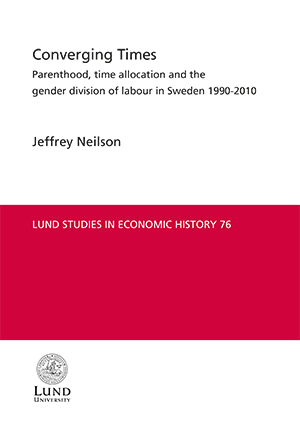This dissertation examines the changing time allocation of men and women at the turn of the 21st century in Sweden, an interesting case given its strong position concerning female labor force participation, maternal employment, and gender equality. The aim is to examine to what extent gender and parenthood affect various types of time allocation, both in the labor market and household, and provide new insights into changes occuring over time between 1990 and 2010. Throughout the 20th century, women became increasing engaged in the labor market, yet parenthood has continued to impact how women spend their time to a much greater extent than men. The persistent, gendered impact of parenthood has begun to change however, which has implications not yet fully understood or documented. Results place Swedish developments in an international perspective, while contributing to our understaning of the changing behaviour of men and women in the labor market and household.


